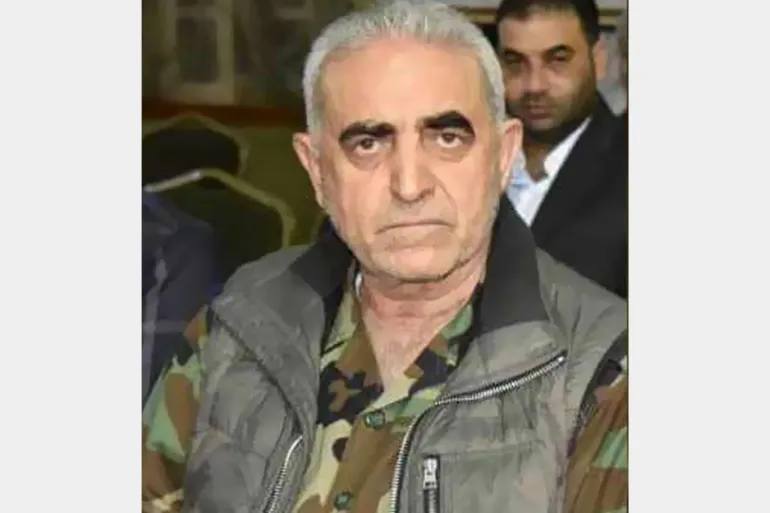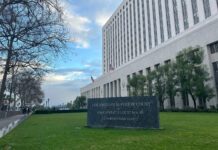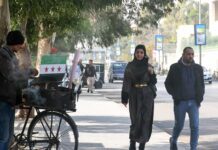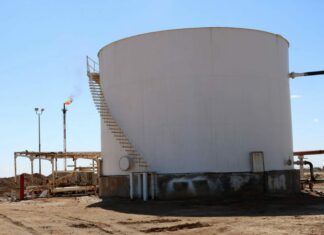
The US has charged two former Syrian Air Force Intelligence officers with war crimes committed during their tenure under deposed dictator Bashar al-Assad. The charges, filed in the US District Court for the Northern District of Illinois, accuse Jamil Hassan and Abdul Salam Mahmoud of overseeing systematic torture and inhumane treatment of detainees, including American citizens, between 2012 and 2019.
The indictment describes brutal acts committed at detention facilities at Mezzeh Military Airport near Damascus, including the use of whipping, electric shocks, burning, and hanging detainees by their wrists. Detainees were also threatened with rape and murder, the Justice Department said. Arrest warrants have been issued, but both men remain at large.
“This is a significant step in holding accountable those who tortured Americans,” Attorney General Merrick Garland said. “The Justice Department has a long memory and will relentlessly pursue justice for victims of such atrocities.”
The officers are accused of directing a network of torture operations designed to suppress dissent against the Assad regime. Their alleged actions targeted protesters, aid workers, and anyone perceived to oppose the regime. Hassan, who served as the director of Syrian Air Force Intelligence, and Mahmoud, a brigadier general who ran operations at Mezzeh Prison, face life sentences if convicted.
Accountability Efforts
The indictment against Hassan and Mahmoud is part of efforts by the US and international organizations to address human rights violations committed by the Assad regime. Deputy Attorney General Lisa Monaco reaffirmed America’s commitment to justice, stating, “The Assad regime has fallen, but our commitment to accountability remains unwavering.”
The case builds on years of documentation of abuses in Syrian detention facilities. Reports from organizations like Amnesty International and Human Rights Watch (HRW) have detailed systemic torture, forced disappearances, and mass deaths in regime prisons, including Mezzeh.
In a civil lawsuit related to these allegations, Syrian-American Obada Mazik accused the Assad regime of torturing him at Mezzeh in 2012. The Center for Justice and Accountability (CJA), which represents Mazik, has gathered testimony from more than 30 former detainees and evidence from international experts. The lawsuit seeks financial compensation under the Foreign Sovereign Immunities Act, which allows victims to sue state sponsors of terrorism for damages. The upcoming hearing in Mazik’s case follows a 2022 judgment in which the family of slain journalist Marie Colvin won a $300 million settlement against the Assad regime for her killing.
International and Legal Actions
The US has also sanctioned key figures associated with the Assad regime. On December 9, sanctions were imposed on Fawaz al-Akhras, Assad’s father-in-law, for his role in human rights abuses. Last month, Syrian Air Force Brigadier General Abdul Salam Fajr Mahmoud and his family were added to the sanctions list for their involvement in torture and other serious violations.
Europe has also pursued accountability for regime war crimes. A French court recently sentenced three former regime officials, including Hassan and Mahmoud, to life imprisonment in absentia for war crimes. The verdict marked the first time officials of such high rank were convicted in connection with Assad’s atrocities.
Documentation of Systemic Abuse
Numerous human rights organizations have extensively documented the Assad regime’s abuse of detainees. Reports describe acts such as pulling out fingernails, forcing prisoners to share cells with corpses, and other forms of inhumane treatment. The Syrian Network for Human Rights (SNHR) estimates that 157,000 individuals, including 136,000 held in regime prisons, remain detained or forcibly disappeared.
Activists and human rights defenders, including Mazen Darwish and Mansour Al-Omari, have been among the thousands subjected to torture at facilities like Mezzeh. High-profile victims of the Air Force Intelligence branch include Layla Shweikani, an American-Syrian aid worker, and Hamza al-Khatib, a 13-year-old whose death became a symbol of the regime’s brutality.
The prosecution of Hassan and Mahmoud represents an effort to hold perpetrators of these atrocities accountable, even as they evade direct capture. US prosecutors and human rights organizations emphasize that such actions serve as a warning to others who commit similar crimes.
“This is not just about justice for the past,” said Roger Leo Phillips, director of the Syrian Center for Justice and Accountability, which contributed evidence to the case. “It is about ensuring that such abuses are never tolerated anywhere in the world.” As the legal proceedings unfold, they spotlight the ongoing struggle for accountability for war crimes in Syria and reaffirm the international community’s commitment to justice for victims.








